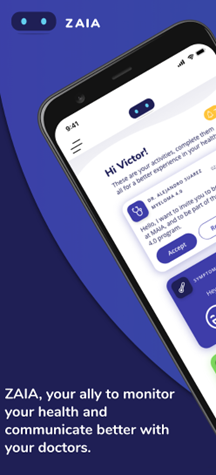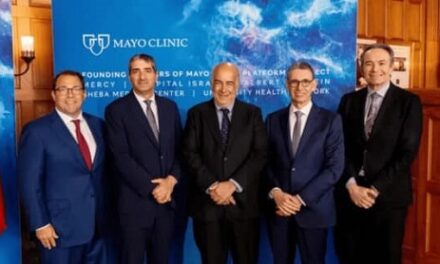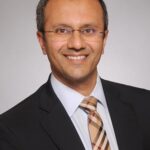By: Eduardo Large, Juan Large, Diana Uejbe.
“Cancer is not a death sentence, but rather it is a life sentence; it pushes one to live.” Marcia Smith.
July 20, 2022 – In recent years, we have lived through what can only be described as a technological revolution at levels never before known to humanity. One of the most significant game changers has been mobile technology, transforming tools that were previously for communication into assets that are actively involved and interacting in our lives via Artificial Intelligence. This development has touched on many facets of our routines and habits but has been prevalent in the medical field, impacting research methods, access to data, and patient-clinician interaction. The Internet has become an essential instrument for medical practitioners, patients, and caregivers alike.

Today, we can safely say that digital applications have improved the quality of life by facilitating and automating day-to-day activities. Simultaneously we are pressed for time and are continuously burdened with more and more tasks that demand our time and attention. These apparently contradicting realities clash full force in the medical field whence the overall perception is that health systems are becoming increasingly ineffective and dehumanized.
Good physicians are irreplaceable. The way a seasoned physician can home in on symptoms and particularities within their patients’ story is almost a unique art form in which chisels of ongoing study meet brushes of gut instinct and a flourish of good bedside manner. We do them a great disservice, at no small cost to the patient, with the current pressures to treat patients in extremely constricted time slots. Unfortunately, a disparate growth rate between diagnosed patients and trained physicians is a reality we can neither deny nor change.
Our current reality can only give us a projection within which doctors will barely have time to give patients full interviews during their, growingly infrequent, interactions and will have little time to pursue the needed spaces for expanding knowledge via medical meetings and personal study and publication. The only way to breach that gap is to use the tools that we have at hand, by boosting productivity for medical professionals while we ensure that patients are all seen as individuals and their cases treated as such. A combination of AI and personal involvement is our best bet if we are to face the challenge responsibly.
“The real risk with AI isn’t malice but competence. A super intelligent AI will be extremely good at accomplishing its goals, and if those goals aren’t aligned with ours, we’re in trouble.” –Stephen Hawking, Theoretical physicist, and futurist.
ZAIA (Z Gen, Artificial Intelligence, Alpha Gen) is born from the recognition of this struggle and a desire to bring a solution to the table. She recognizes each patient as an individual first and foremost, capturing experience and environment, creating a space where the person and their day-to-day health (physical and mental) condition is documented. She collects data beyond the clinical record and creates a simple pathway that connects patients and clinical teams in a productive and attentive way. Via the personalized platform, patients record their unique clinical journey, providing the care team with a deep understanding of “Alex Jones”, as opposed to a basic overview of “Mr. A. Jones-patient 4866”. So that the data isn´t overwhelming and does not turn into useless noise; our AI sorts and studies this data to focus clinical attention where it is most needed, and our process tools automate tasks for the team so as to liberate their schedules for more meaningful work. ZAIA also generates resources for industry agents to generate a better connection to what is required of them in the real world outside of the EMR (Electronic Medical Record).
In this way, we can define ZAIA as a perfect healthcare ecosystem, which redefines the journey of patient care through a transparent and rich flow of information. Furthermore, it is the connective tissue that protects from data loss and brings information to bear in real-time for the patient and the provider. The patient as the center of gravity rewards best practice and self-care, bringing about the era of performance-based medicine.
“Our intelligence is what makes us human, and AI is an extension of that quality. Artificial intelligence is extending what we can do with our abilities. In this way, it’s letting us become more human.”- Yann LeCun.
The Future for Smart Disease Management for Cancer is here to deploy quality health for everyone.
https://blogthinkbig.com/tecnologia-aliada-lucha-contra-el-cancer
https://www.bbc.co.uk/news/uk-43396008
Visit us in the Innovation and Technology HUB at the Florida International Medical Expo, July 27-29th 2022 at Miami Beach Convention Center. You can also connect with us on FIME ONLINE from July 11th to August 29th Register to attend both events FREE https://fimeshow.info/3vx6Rat https://www.fimeshow.com



























